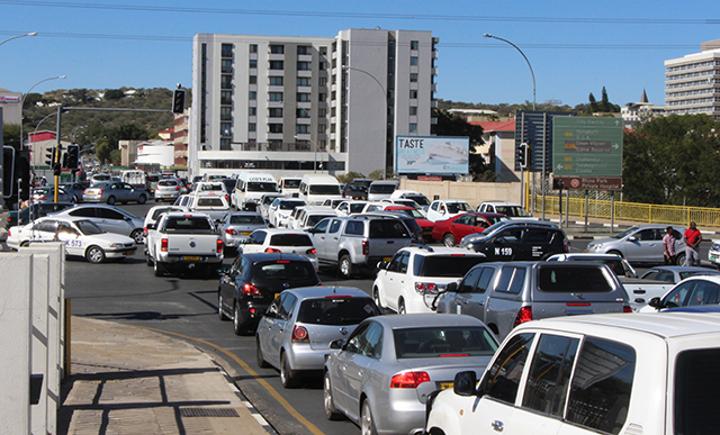Africa-Press – Namibia. SECOND-HAND engines, gearboxes, shock absorbers, headlights and doors… Name it and you will most likely find these spares at one Windhoek car breaker or the other.
Pena Petrus Tjipunyu has been running a car breaking shop also known as a scrapyard, along Independence Avenue in Wanaheda for six years. He says his service brings spare parts closer to the people which helps keep motorists on the road.
He sells spares for a wide variety of vehicles – Range Rover, Hyundai, BMW X5, Toyota Corolla and different makes of VWs, although he says turnover is slow.
“You can buy a Toyota Corolla for N$12 000 and sell it in parts for N$30 000 but that money does not come the same day as some parts take long to sell.
“We are, however, keeping motorists on the road. Some of our spares are better than new pirate parts found in shops because they are originals from the manufacturers. We provide used parts to enable people who cannot afford new car parts to get back on the road.
“They could be running a taxi business and must take people to work or children to school, so they do not have to park their cars while waiting for a spare part from either Japan or South Africa, which may take weeks to come,” said Tjipunyu.
Isaak Shigwedha who runs Tuffy Trading Car Breakers along Shanghai Street agreed. He has a wide range of spares in stock – headlights, batteries, gearboxes, bolts and nuts.
“We sell parts, most of them still in good condition, for about half the price people would pay for them at spares shops,” he said.
“Our customers can still negotiate the price, something they would not do at spares shops,” he added.
He said they mostly break accident damaged vehicles they buy from auctions although they still acquire some cars from individual owners who no longer want them.
“As a precaution we record the seller’s identity details to ensure we do not buy a stolen vehicle,” he said.
Tjipunyu said they are only allowed to buy complete vehicles to discourage vehicle theft.
“Police officers occasionally visit our premises, especially when they are looking for stolen vehicles and if they find you buying loose parts from individuals, they will arrest you for abetting criminals,” he said adding that he once unknowingly bought a stolen vehicle which police returned to the owner. He lost the money he paid while the seller went to jail.
Warrant officer Ester Elamo from the stolen goods section confirmed that they regularly visit car breakers and any other dealers in second-hand goods to ensure they are not dealing in stolen goods.
“They must record all transactions so that when we come to inspect them, we get them. If we find that they are dealing in stolen goods we will arrest them and close their business,” she warned.
While car breakers provide a valuable service, Tjipunyu said they are not seeing fair returns.
“Business is tough with few customers going around. The little money we make goes to rent for the garage, payment for workers and the security company. One time I had to sell cattle at the village to pay overheads,” said Tjipunyu who has three employees.
However, Mwazina Haipinge of Tuffy Car Breakers blamed slow business on the ripple effects of Covid-19.
“People do not have money because they lost jobs to Covid, so they no longer use taxis as much as they used to and taxi drivers are not making money and they are finding it hard to buy from us,” Haipinge said.
Shigwedha who has four employees, blamed increased competition for the decline in business: “There are now too many people breaking cars for parts, some of them unlicensed.”
Tjipunyu blamed the competition on the fact that they do not have a union to represent them and the government has not helped them in any way: “It’s each man for himself.”
He said the government or municipality should give them land which they can pay off over a period of time.
“We end up being stuck with spares like vehicle shells that do not sell fast,” he said.
Email: [email protected]






